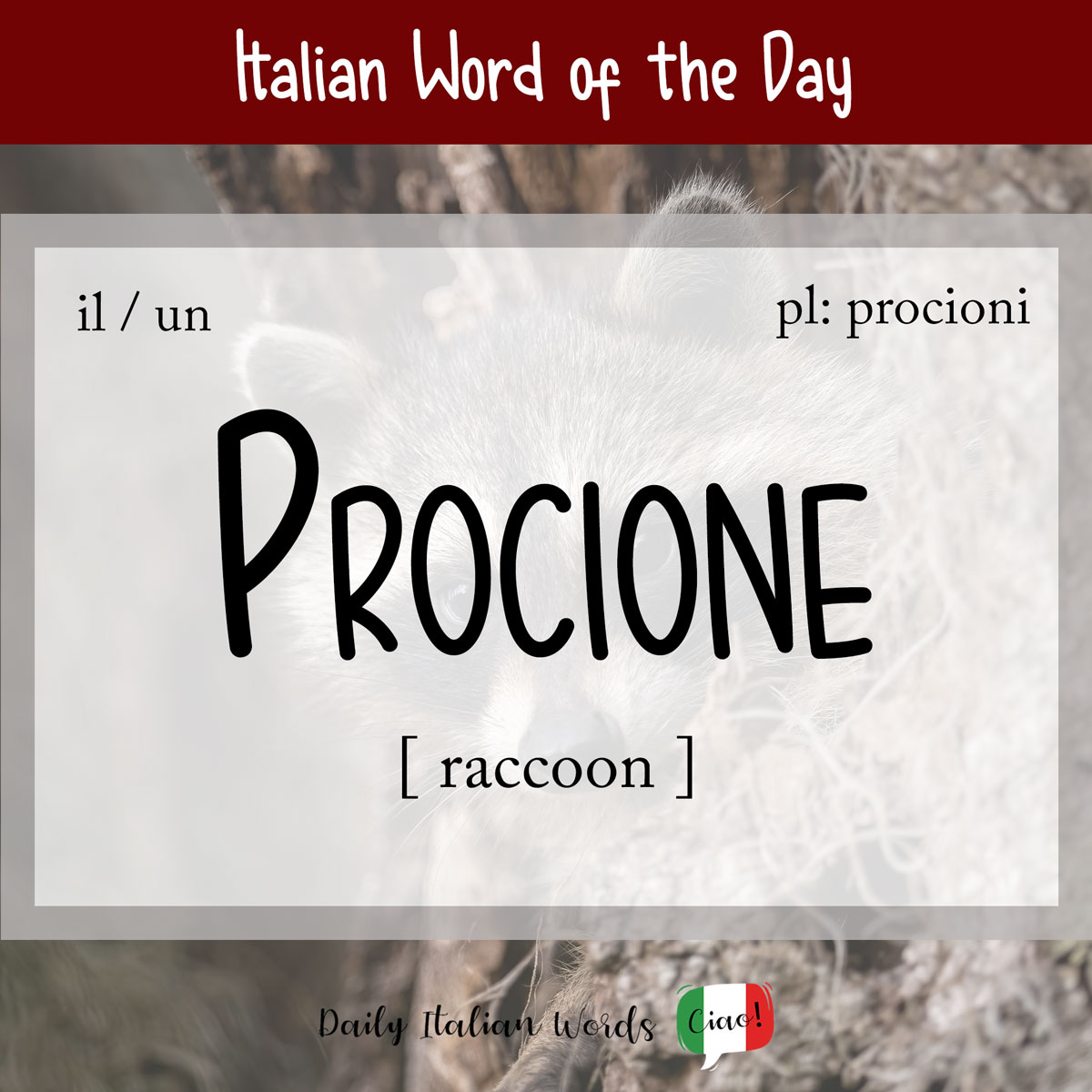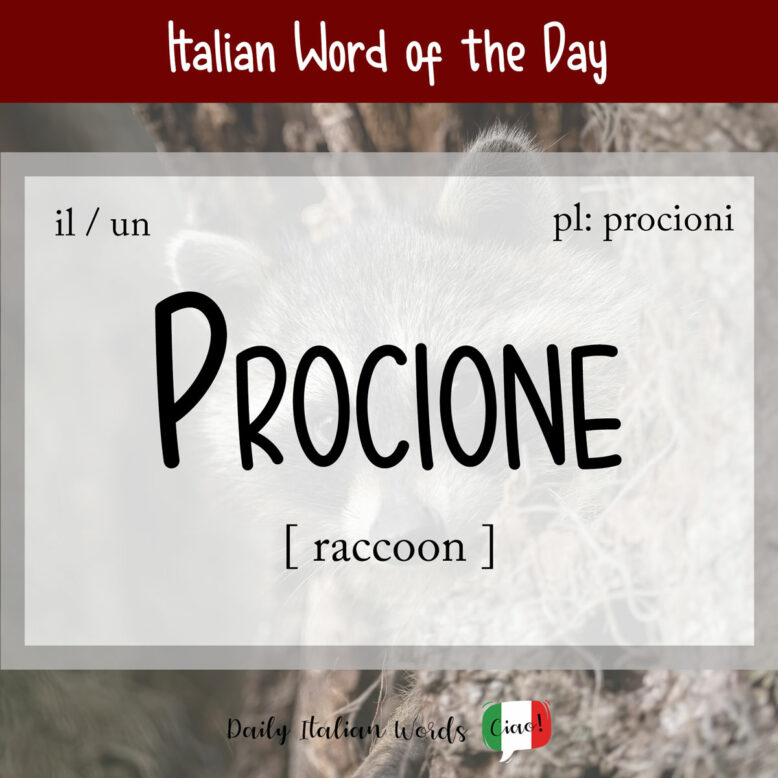
[ad_1]
Ever since my uncle gifted it to him two years in the past, my son has been obsessed along with his stuffed raccoon. Wherever my son goes, Raccoon should comply with. There at the moment are indicators of stuffing popping out of a gap beneath his armpit, and his fur isn’t almost as silky as when he first arrived, however my son loves him simply the identical.
Raccoon (or racoon as it’s generally spelled) in Italian interprets as procione.

It comes from the Greek prokýōn (“barking canine”) which is made up of the phrases professional (earlier than) and kýōn (canine). They’re a part of the household of Procyonidae, native to North America and comprising raccoons, ringtails, cacomistles, coatis, kinkajous, olingos, and olinguitos.
As a result of it’s a masculine noun, it takes the next particular and indefinite articles:
- il procione = the raccoon
- i procioni = the raccoons
- un procione = a raccoon
- (dei) procioni = (some) raccoons
I procioni sono attratti dai bidoni della spazzatura.
Raccoons are drawn to trash cans.
Three of the raccoon’s most distinctive options are its dexterous entrance paws (le abili zampe posteriori), its black facial masks (la mascherina di pelo nero), and its ringed tail (gli anelli chiari e scuri alternati della coda). Its look is commonly in comparison with that of a bandit (bandito).

There’s really one other title for the procione in Italian: orsetto lavatore. It’s because Carl Linnaeus, the daddy of contemporary taxonomy, categorized the raccoon within the genus Ursus as Ursus lotor (“washing bear”) within the tenth version of Systema Naturae (1758-59). The title was impressed by the animal’s behavior of washing its meals in a stream earlier than consuming it when in captivity. It was solely later, in 1780, that Gottlieb Conrad Christian Storr categorized the raccoon in its personal genus referred to as Procyon.
Procione (Procyon in English) can also be the title given to the brightest star within the constellation of Canis Minor. It’s thought that Storr might have named the animal after the star as a result of raccoon’s nocturnal way of life.
[ad_2]